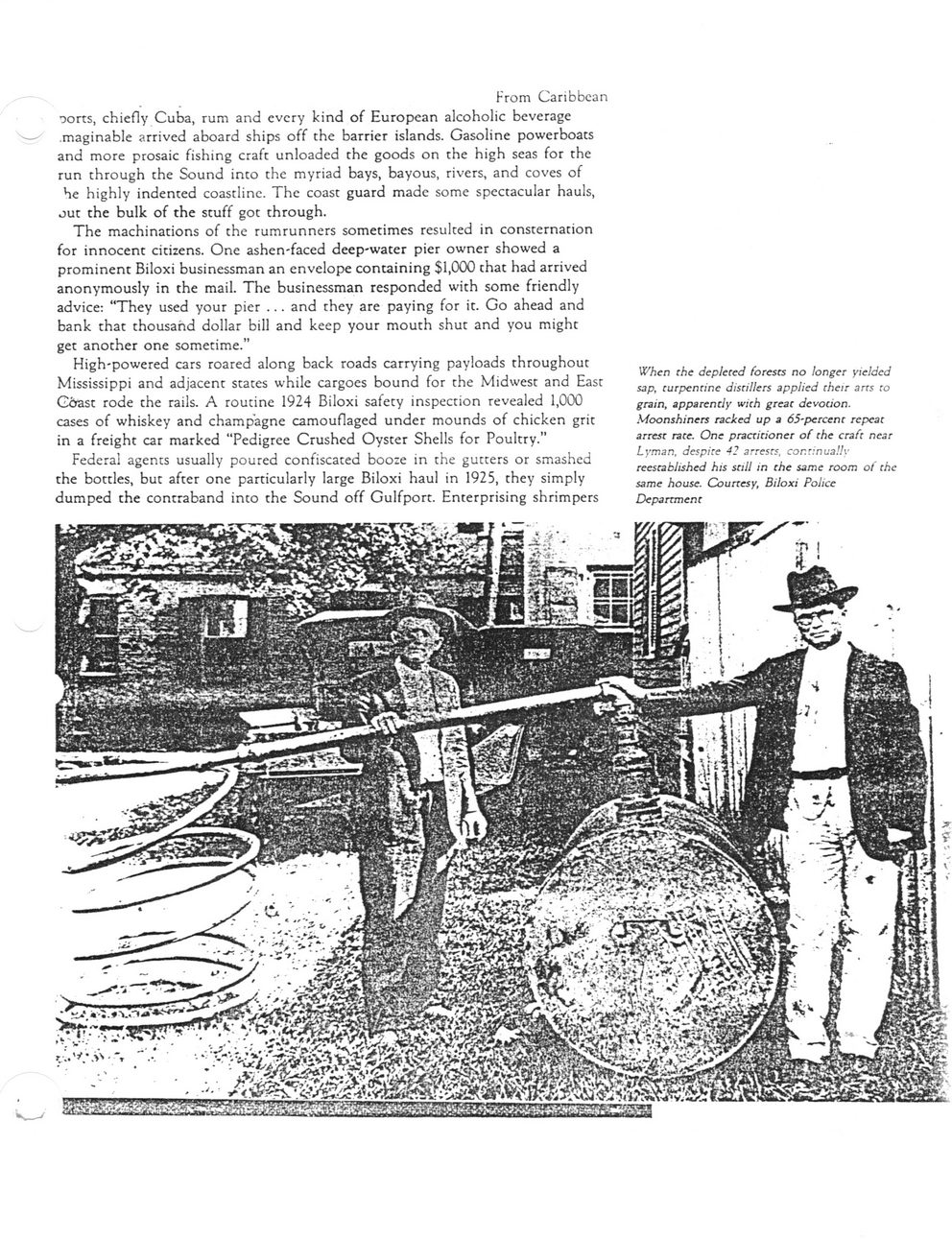This text was obtained via automated optical character recognition.
It has not been edited and may therefore contain several errors.
From Caribbean oorts, chiefly Cuba, rum and every kind of European alcoholic beverage maginable arrived aboard ships off the barrier islands. Gasoline powerboats and more prosaic fishing craft unloaded the goods on the high seas for the run through the Sound into the myriad bays, bayous, rivers, and coves of he highly indented coastlinc. The coast guard made some spectacular hauls, out the bulk of the stuff got through. The machinations of the rumrunners sometimes resulted in consternation for innocent citizens. One ashen-faced deep-water pier owner showed a prominent Biloxi businessman an envelope containing $1,000 that had arrived anonymously in the mail. The businessman responded with some friendly advice: “They used your pier ... and they are paying for it. Go ahead and bank that thousand dollar bill and keep your mouth shut and you might get another one sometime.” High-powered cars roared along back roads carrying payloads throughout Mississippi and adjacent states while cargoes bound for the Midwest and East G&ast rode the rails. A routine 1924 Biloxi safety inspection revealed 1,000 cases of whiskey and champagne camouflaged under mounds of chicken grit in a freight car marked “Pedigree Crushed Oyster Shells for Poultry.” Federal agents usually poured confiscated boo:e in the gutters or smashed the bottles, but after one particularly large Biloxi haul in 1925, they simply dumped the contraband into the Sound off Gulfport. Enterprising shrimpers When the depleted forests no longer yielded sap, turpentine distillers applied their arts to grain, apparently with great devotion. Moonshiners racked up a 65'percent repeat arrest rate. One practitioner of the craft near Lyman, despite 42 arrests, continually reestablished his still in the same room of the same house. Courtesy, Biloxi Police Department

Kiln History Document (112)